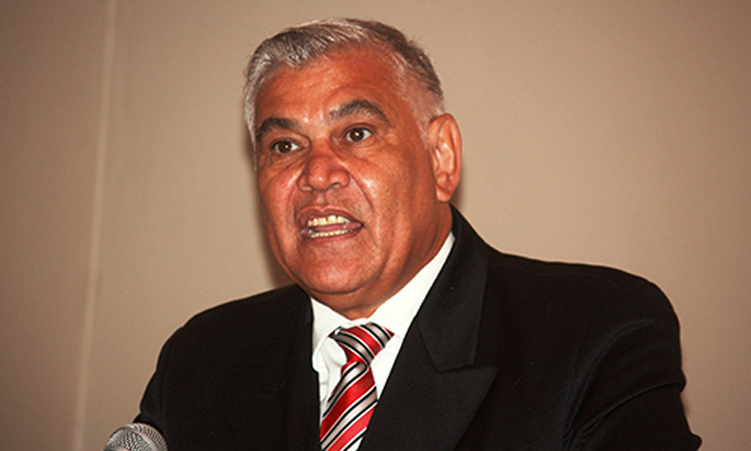NEW YORK – A former colleague of Jacob (‘Kobi’) Alexander, the Israeli-born businessman who has settled in Namibia while under threat of being extradited to the United States to face fraud and other charges, was sentenced to a year and one day in prison on Thursday for the role he played in the alleged fraud scheme in which Alexander is also accused.
William Sorin was the former top lawyer at software maker Comverse Technology Inc., the company that Alexander helped create and of which he was the Chief Executive Officer until he, Sorin and another senior colleague at the company, David Kreinberg, resigned from their posts on May 1 last year. Sorin was sentenced on Thursday to a year and one day in prison for his role in a stock options backdating scheme of which the discovery at Comverse led to his and his two colleagues’ resignations.With the sentencing, Sorin has become the first corporate executive to be sentenced for a spate of options-related crimes that have been uncovered recently at various US companies.Sorin, the company’s former general counsel, had pleaded guilty in US District Court in Brooklyn to one criminal count of conspiracy to commit securities fraud, mail fraud and wire fraud as part of a plea agreement.Alexander is facing 35 charges in the same court.These include a first count of conspiracy to commit securities fraud, mail fraud and wire fraud, various other charges of fraud, further counts of money laundering, and a charge of bribery and witness tampering respectively.Alexander is considered a fugitive by US prosecutors.He has been living in Namibia since late July last year.A request from the US government for him to be extradited to the US to be put on trial on the charges that he faces in New York is currently awaiting a hearing by a Magistrate in Windhoek.Kreinberg, who is Comverse’s former chief financial officer, also has pleaded guilty to conspiracy and securities fraud.He awaits sentencing.Sorin and two fellow former Comverse executives – Alexander and Kreinberg – are accused of reaping millions of US dollars in profits by altering the grant dates of stock option awards from 1998 to 2002 to boost gains available to themselves and favoured employees.At Thursday’s sentencing, US District Judge Nicholas Garaufis rejected defence attorneys’ requests that Sorin be spared jail time, saying that while he was not the mastermind of the options scheme, he helped carry it out.Sorin wasn’t “the grand Wizard of Oz,” the judge said.”But he facilitated a portion of it with his actions.”Defence attorney Paul Shechtman said his client, a 58-year-old graduate of Harvard Law School, was a fundamentally decent person who made a mistake.Noting that Sorin was the first US executive to be sentenced in an options case, he asked the judge to consider the facts and not to treat the sentencing as in punishing children, in which “one treats the first child more firmly than those who come later”.Options backdating has been under scrutiny throughout corporate America.More than 180 companies have been investigated by US authorities or have conducted internal inquiries into possible manipulation of option grant dates, while dozens of US executives have resigned in the storm over options practices.Sorin told the judge in brief remarks that he made no excuses for his conduct.”The very fact that I find myself before this court is extremely painful to me and my family,” he said.Sorin has admitted knowing that the company was issuing backdated options and did nothing to stop the practice.The judge also ordered Sorin to pay $51,8 million (about N$363 million) in restitution.This represents the US government’s estimate of the total losses incurred by the company through the overall backdating activity.However, the judge stayed payment of the restitution because the case against other defendants is continuing.Outside the courtroom, the defence lawyer said Sorin likely would only be responsible for a small portion of that total restitution amount, and that he hoped the $3 million (about N$21 million) settlement Sorin already agreed to pay in a civil settlement with the US regulators would count toward Sorin’s portion.Alexander is scheduled to appear before a Windhoek Magistrate again on June 8, when the date for his extradition hearing might be set.Nampa-Reuters and own reporterSorin was sentenced on Thursday to a year and one day in prison for his role in a stock options backdating scheme of which the discovery at Comverse led to his and his two colleagues’ resignations.With the sentencing, Sorin has become the first corporate executive to be sentenced for a spate of options-related crimes that have been uncovered recently at various US companies.Sorin, the company’s former general counsel, had pleaded guilty in US District Court in Brooklyn to one criminal count of conspiracy to commit securities fraud, mail fraud and wire fraud as part of a plea agreement.Alexander is facing 35 charges in the same court.These include a first count of conspiracy to commit securities fraud, mail fraud and wire fraud, various other charges of fraud, further counts of money laundering, and a charge of bribery and witness tampering respectively.Alexander is considered a fugitive by US prosecutors.He has been living in Namibia since late July last year.A request from the US government for him to be extradited to the US to be put on trial on the charges that he faces in New York is currently awaiting a hearing by a Magistrate in Windhoek.Kreinberg, who is Comverse’s former chief financial officer, also has pleaded guilty to conspiracy and securities fraud.He awaits sentencing.Sorin and two fellow former Comverse executives – Alexander and Kreinberg – are accused of reaping millions of US dollars in profits by altering the grant dates of stock option awards from 1998 to 2002 to boost gains available to themselves and favoured employees.At Thursday’s sentencing, US District Judge Nicholas Garaufis rejected defence attorneys’ requests that Sorin be spared jail time, saying that while he was not the mastermind of the options scheme, he helped carry it out.Sorin wasn’t “the grand Wizard of Oz,” the judge said.”But he facilitated a portion of it with his actions.”Defence attorney Paul Shechtman said his client, a 58-year-old graduate of Harvard Law School, was a fundamentally decent person who made a mistake.Noting that Sorin was the first US executive to be sentenced in an options case, he asked the judge to consider the facts and not to treat the sentencing as in punishing children, in which “one treats the first child more firmly than those who come later”.Options backdating has been under scrutiny throughout corporate America.More than 180 companies have been investigated by US authorities or have conducted internal inquiries into possible manipulation of option grant dates, while dozens of US executives have resigned in the storm over options practices.Sorin told the judge in brief remarks that he made no excuses for his conduct.”The very fact that I find myself before this court is extremely painful to me and my family,” he said.Sorin has admitted knowing that the company was issuing backdated options and did nothing to stop the practice.The judge also ordered Sorin to pay $51,8 million (about N$363 million) in restitution.This represents the US government’s estimate of the total losses incurred by the company through the overall backdating activity.However, the judge stayed payment of the restitution because the case against other defendants is continuing.Outside the courtroom, the defence lawyer said Sorin likely would only be responsible for a small portion of that total restitution amount, and that he hoped the $3 million (about N$21 million) settlement Sorin already agreed to pay in a civil settlement with the US regulators would count toward Sorin’s portion.Alexander is scheduled to appear before a Windhoek Magistrate again on June 8, when the date for his extradition hearing might be set.Nampa-Reuters and own reporter
Stay informed with The Namibian – your source for credible journalism. Get in-depth reporting and opinions for
only N$85 a month. Invest in journalism, invest in democracy –
Subscribe Now!






